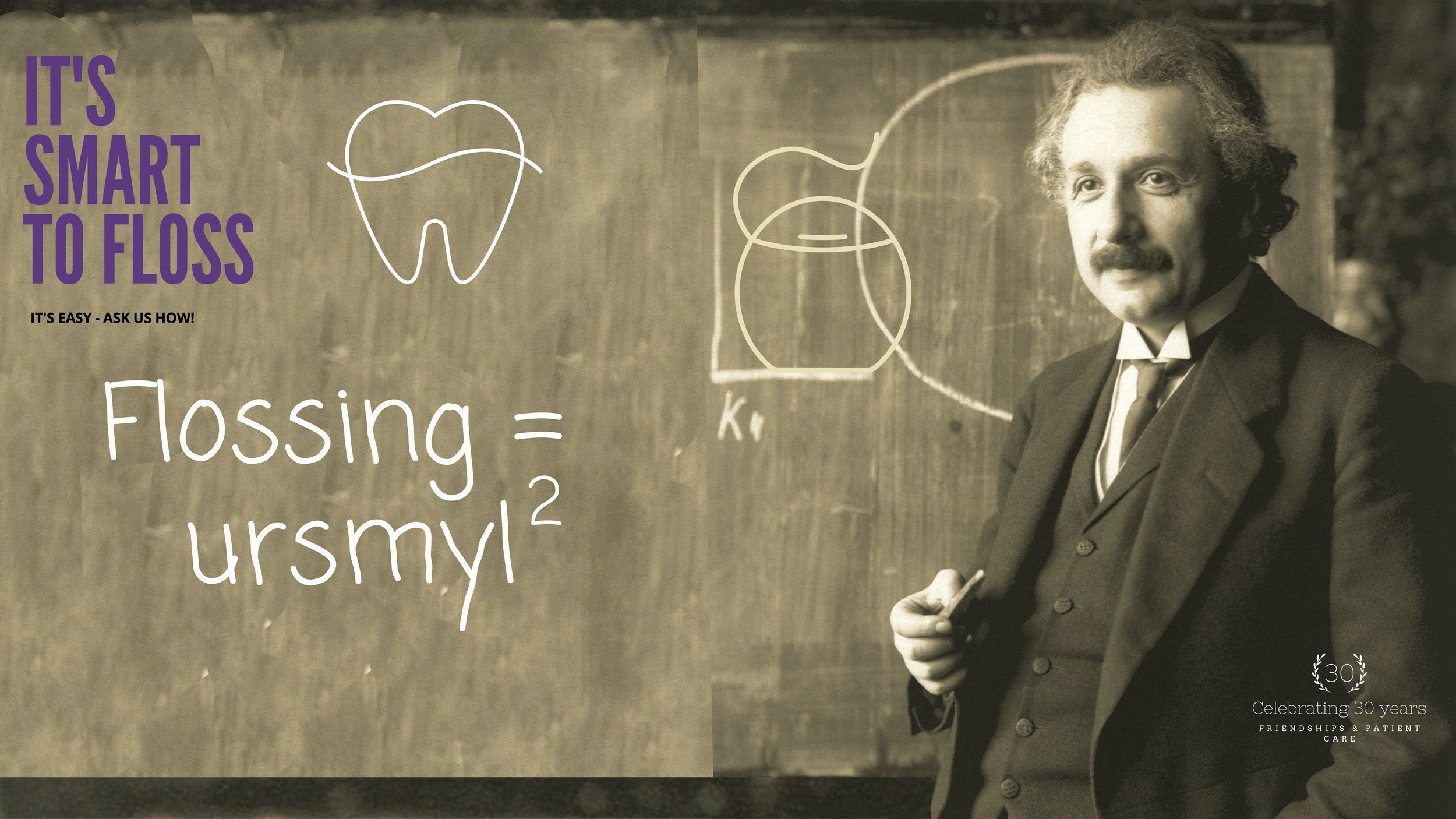Floss like your teeth depend on it. They do!
The joke I’ve seen several times lately shows a person in a dental chair and the hygienist asks: “So, when was the last time you flossed?” Without missing a beat, the patient says: “You should know, you were there!”
Sadly, it’s truer than we at Huszti Dental Care would like to admit. A strong majority of patients admit to only flossing occasionally, and some only when they can feel something stuck between their teeth.
We get it. Some people are uncomfortable putting their hands in their own mouths and they don’t see any results when they’re done. But if they knew the amount of good they are doing, they would make flossing an important part of their oral hygiene program.
Flossing works great in places brushes can’t reach to remove plaque — the film that collects between teeth and near the gumline — that reacts with sugary and starchy food and drinks to harm your tooth enamel, which leads to cavities or tartar buildup. If not treated in a timely fashion, cavities can endanger the health of a tooth and tartar buildup can increase the risk of gum disease. By flossing, you are reducing the chance of developing cavities and helping prevent gum disease.
Another great benefit of flossing is that it removes food that gets trapped in the nooks and crannies of your mouth and decays, which causes bad breat. If you notice your breath is not as fresh as you would like, flossing may be an option.
In addition, you may recall reading other posts on this blog that discuss growing research that seems to link poor oral hygiene with heart disease. So flossing doesn’t just help your mouth, it can help your whole body!
So now it’s time for the basics: Brush your teeth twice every day and floss your teeth once every day. There’s no wrong way to floss, just be gentle. Gums may be tender when you start and you might bleed a bit, don’t worry, that’s normal and should go away quickly. If you are concerned, though, about gum bleeding, be sure to call our dental office serving Milford and Highland to make an appointment with our specialists.
Floss comes waxed or unwaxed and both work equally well, as long as you actually floss. There are broad, flat flosses and sort of puffy floss that expands into gaps and all these work well, too. Still don’t like flossing? Try a water flosser. Interdental brushes and floss/picks can make it easy to get into the habit. And it’s a good habit to get into.
We’ll close with another flossing joke a dentist friend of mine uses all the time. He gives patients samples of dental floss at the end of their appointments and tells his patients, “This dental floss is to get you started — it’s not meant to be a lifetime supply.”
Joking aside: Flossing is a seriously important way to keep your mouth clean and to keep yourself healthy.
